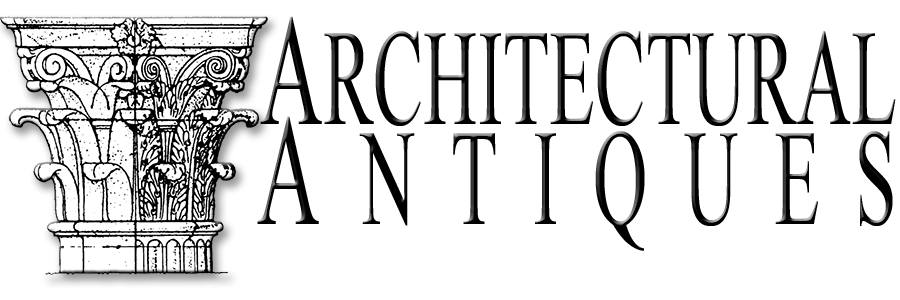A Portrait of the Salesman as a Young Man
/Here at Architectural Antiques, we love knowing the backstory of the items that come into our store. Sometimes it can be difficult--items without tags or makers' marks are generally harder to look up. But we recently received many sets of beautiful walnut folding chairs from Metropolitan Missionary Baptist Church in Youngstown, Ohio that just yelled, "Research me!" because when we lifted up the seats, we found a treasure trove of information.
We had a name, a job title, and an address! This was a great start, but the story of "J.B. Fithian, Factory Representative" proved to be more difficult to uncover than our fruitful beginning led us to believe. After combing through U.S. Census records, birth and death certificates, and some particularly enlightening antique poultry magazines, we managed to unearth an interesting profile of a hardworking man.
J.B. Fithian, Factory Representative
James Bruce Fithian was born on March 14, 1868 to Mary J Powers and Charles L Fithian, a farmer and former Civil War infantryman. The middle of five children, James grew up alternating going to school and working on the family farm before heading off to complete two years of college. In 1897, he married Grace Caufield, daughter of Alexander Caufield and Elizabeth Meenley. The 1900 U.S. census lists his occupation as yardmaster, or boss of the rail yard, at the Ohio Steel Plant. This was also the year his eldest daughter, Elizabeth, was born.
James must have tired of the railroad business, because around 1905 he began a wholesale grocery business with his youngest brother, Decker R. Fithian, whose share James quickly bought out. An ad placed in a 1906 edition of “The Egg Reporter,” a poultry industry publication, reveals a young business trying to make a name for itself:
By 1909, Fithian Poultry Co. was either struggling, or James wanted to increase his economic influence, because he merged with the J.G. Thomas Co. to become Thomas, Hearn, Fithian Co., as reported by the 28th edition of the New York Produce Review and American Creamery:
This new venture employed 65 people in Youngstown, along with 12 traveling men on the road throughout New England and Ohio. The 1910 U.S. census lists James as a salesman for a wholesale producer and his wife Grace as an organist. However, by 1912, J.G. Thomas left the business, and on December 29, 1912 Thomas, Hearn, Fithian Co. officially became Hearn-Fithian Company. The following year they built a six story brick warehouse at 337 W Commerce St in Youngstown, which is now the location of a Greyhound station.
Along with being a prominent businessman in Youngstown, James was a Mason and a member of the Eastern Star, served on the city council, and was on the board of Trinity Methodist Episcopal Church. He was a strong prohibitionist who "sought to exert his influence on behalf of civic betterment and moral uplift." Although urged to run for mayor several times, he thought he could better serve his community as a private citizen. In 1920, James decided the time was right for a change and left Hearn-Fithian Company to become a broker with the city. Hearn-Fithian Co. became Hearn-Miller Co., and today is the Hearn Paper Company, still located in Youngstown.
Little is known about James' life after this until he appears in the 1930 census, although this time in Cleveland, Ohio:
A “jobber” is another name for a wholesaler. It appears that he made a switch from wholesale produce to wholesale church furniture! This would explain his connection to Metropolitan Missionary Baptist Church. The address under which James registered, 2548 Overlook Road, is also the location found on the chairs' maker's marks. With this final piece of information in place, we can confirm that we have the right guy. James died at his home on March 17, 1941, three days after his 73rd birthday. While we may never know the intimate details of James' everyday life, perhaps the fullest picture we get of this hardworking man is in the description given in the American Historical Society's History of Youngstown and Mahoning Valley, Ohio:
"If Mr. Fithian had accomplished nothing more than his triumph over the liquor element, he could feel that his life has been of great value to his community, but in addition to this side of his character, he is a useful citizen, excellent business man and tried and true friend, and it is doubtful if Youngstown possesses anyone more representative of its best interests than this upright, capable, Christian gentleman."
We have 9 single folding chairs and 27 double folding chairs available in store. Check them out by clicking on the photos!







